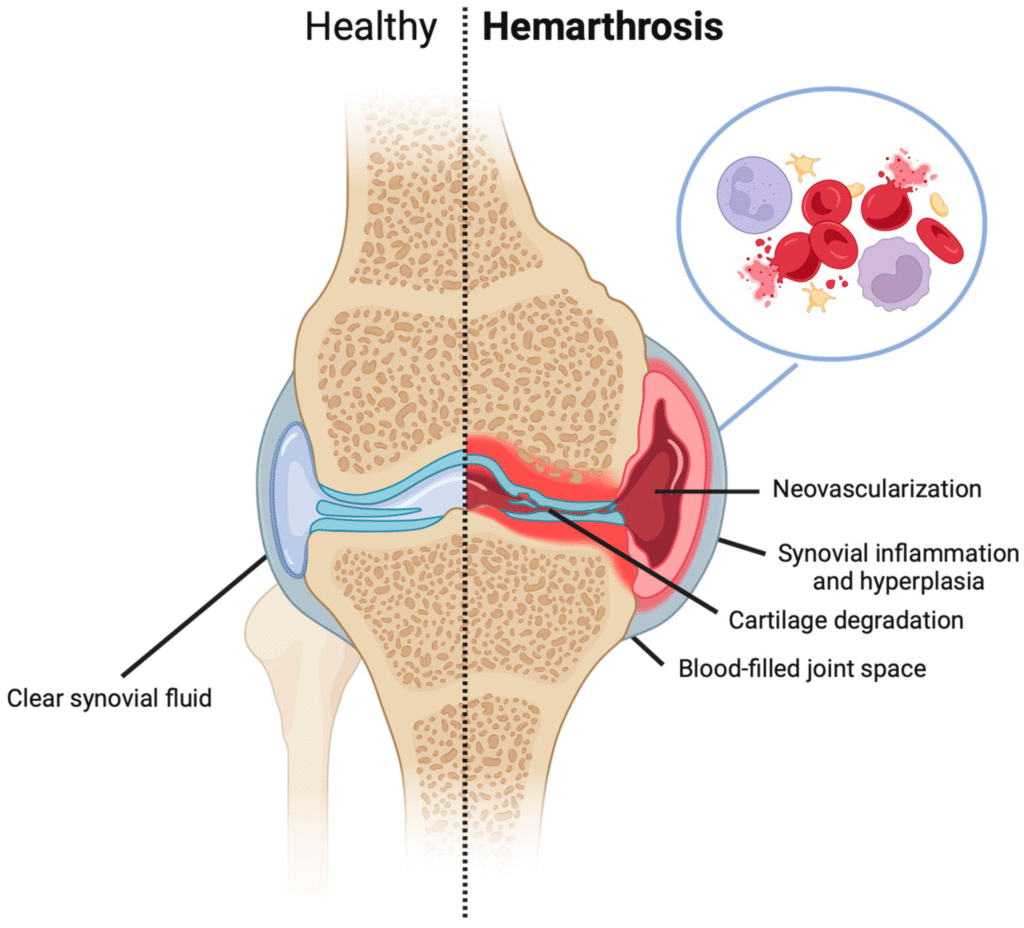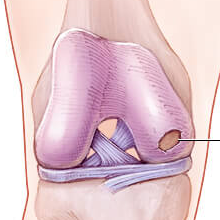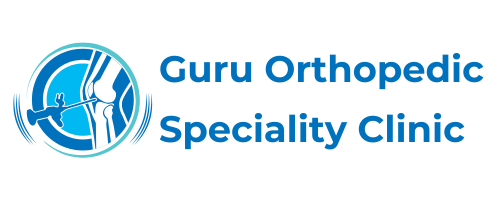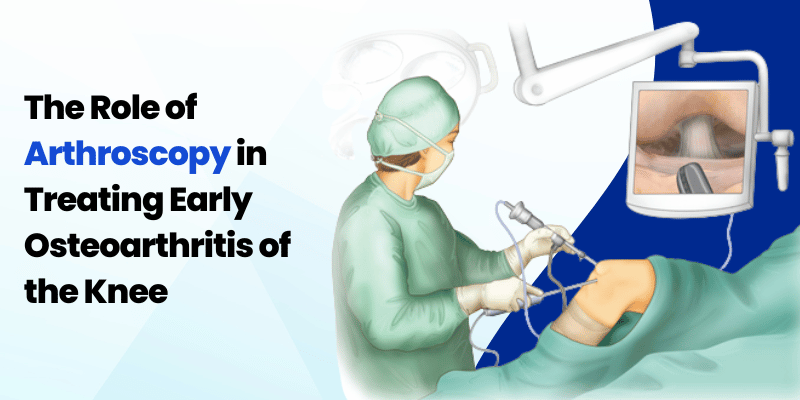
Dr. AKSHAY HANAMSHETTI,
Orthopedic and Sports Medicine Surgeon
Fellowships: Joint Replacement | Sports Medicine | Arthroscopy
Osteoarthritis (OA) of the knee is a leading cause of pain and disability worldwide, often perceived as a progressive, degenerative condition with limited options short of joint replacement. In its early stages, however, the pathology is more dynamic—and, at times, reversible. Herein lies the opportunity for arthroscopy to play a nuanced but valuable role in both diagnosis and treatment.
Revisiting the Controversy
Arthroscopy for degenerative knee disease has long been debated, especially following landmark studies like Moseley et al. (2002) and Kirkley et al. (2008), which suggested minimal benefit over placebo or conservative therapy. However, these studies largely examined advanced OA, where cartilage loss was extensive and joint space was severely compromised.
Emerging evidence and refined patient selection suggest a more specific role for arthroscopy in early-stage OA—particularly where mechanical symptoms and intra-articular pathology coexist.

Defining “Early Osteoarthritis”
- Kellgren-Lawrence Grade 1 or 2
- Intermittent pain, often activity-related
- Minimal to moderate joint space narrowing
- Preserved alignment
- Presence of treatable mechanical issues (e.g., meniscal tears, loose bodies, synovitis)
When Arthroscopy Helps
1. Symptomatic Meniscal Tears in OA

Degenerative meniscal tears often accompany early OA. In select patients with persistent joint line tenderness, mechanical locking, or catching—arthroscopic partial meniscectomy may provide relief.
Key Point: The benefit is greater in patients with mechanical symptoms and minimal arthritic changes, particularly younger or active individuals.
2. Loose Bodies & Debridement

Arthroscopy offers an excellent method to remove loose fragments, smooth fibrillated cartilage, and address unstable flaps that contribute to pain and joint inflammation.
3. Synovial Hypertrophy & Plica Syndromes

Inflamed or fibrotic synovium may cause anterior knee pain in early OA. Arthroscopic synovectomy or plica excision can alleviate such localized irritants.
4. Cartilage Lesions and Biologic Adjuncts

In cases of localized chondral defects, microfracture or other cartilage repair techniques (e.g., PRP or stem cell adjuncts) may delay OA progression.
Limitations and Patient Selection
Arthroscopy is not a cure for OA. Its role is palliative and selective—not universal.
Ideal candidates:
- Age < 60
- Mild radiographic OA
- Mechanical symptoms
- Failed conservative management
- Normal limb alignment
- High activity level or athletic lifestyle
Not suitable for:
- Advanced OA (KL grade 3–4)
- Diffuse joint pain without mechanical symptoms
- Severe malalignment or ligamentous instability
Rehabilitation and Long-Term Outcomes
Post-arthroscopy rehab should focus on:
- Muscle strengthening
- Weight control
- Activity modification
- Addressing underlying biomechanics (e.g., hip/knee muscle imbalance)
When combined with lifestyle interventions and possibly biologics, arthroscopy can be a bridge—delaying the need for more invasive options like joint replacement.
Conclusion
While arthroscopy is no panacea for knee osteoarthritis, it still holds clinical value in early-stage disease with mechanical symptoms. As with all interventions in orthopedics, the key lies in patient selection, surgical precision, and a comprehensive post-operative plan. For the right patient, arthroscopy can offer meaningful pain relief, improved function, and a delayed progression of joint degeneration.
References
Englund, M., Guermazi, A., Gale, D., Hunter, D. J., Aliabadi, P., Clancy, M., … & Felson, D. T. (2012). Meniscal tear in knees without surgery: MRI and clinical outcomes. New England Journal of Medicine, 367(4), 329–335. https://doi.org/10.1056/NEJMoa1115136
Gomoll, A. H. (2011). Surgical management of articular cartilage defects of the knee. The Journal of Bone and Joint Surgery. American Volume, 93(7), 642–650. https://doi.org/10.2106/JBJS.I.01300
Herrlin, S., Hallander, M., Wange, P., Weidenhielm, L., & Werner, S. (2007). Arthroscopic or conservative treatment of degenerative medial meniscal tears: A prospective randomised trial. Knee Surgery, Sports Traumatology, Arthroscopy, 15(4), 393–401. https://doi.org/10.1007/s00167-006-0310-8
Kirkley, A., Birmingham, T. B., Litchfield, R. B., Giffin, J. R., Willits, K. R., Wong, C. J., … & Fowler, P. J. (2008). A randomized trial of arthroscopic surgery for osteoarthritis of the knee. New England Journal of Medicine, 359(11), 1097–1107. https://doi.org/10.1056/NEJMoa0708333
Moseley, J. B., O’Malley, K., Petersen, N. J., Menke, T. J., Brody, B. A., Kuykendall, D. H., … & Wray, N. P. (2002). A controlled trial of arthroscopic surgery for osteoarthritis of the knee. New England Journal of Medicine, 347(2), 81–88. https://doi.org/10.1056/NEJMoa013259
Siemieniuk, R. A. C., Harris, I. A., Agoritsas, T., Poolman, R. W., Brignardello-Petersen, R., Van de Velde, S., … & Guyatt, G. H. (2017). Arthroscopic surgery for degenerative knee arthritis and meniscal tears: A clinical practice guideline. British Journal of Sports Medicine, 51(12), 996–1004. https://doi.org/10.1136/bjsports-2017-097486
Sihvonen, R., Paavola, M., Malmivaara, A., Itälä, A., Joukainen, A., Nurmi, H., … & Järvinen, T. L. N. (2016). Arthroscopic partial meniscectomy for a degenerative meniscus tear: A 5-year follow-up of a randomized controlled trial. BMJ Open, 6(12), e011454. https://doi.org/10.1136/bmjopen-2016-011454
Thorlund, J. B., Juhl, C. B., Roos, E. M., & Lohmander, L. S. (2015). Arthroscopic surgery for degenerative knee: Systematic review and meta-analysis of benefits and harms. BMJ, 350, h2747. https://doi.org/10.1136/bmj.h2747
Yim, J. H., Seon, J. K., Song, E. K., Choi, J. I., Kim, M. C., Lee, K. B., & Seo, H. Y. (2013). A comparative study of meniscectomy and nonoperative treatment for degenerative horizontal tears of the medial meniscus. The American Journal of Sports Medicine, 41(7), 1565–1570. https://doi.org/10.1177/0363546513488510
American Academy of Orthopaedic Surgeons (AAOS). (2013). Treatment of osteoarthritis of the knee: Evidence-based guideline, 2nd edition. https://www.aaos.org/oakguideline

